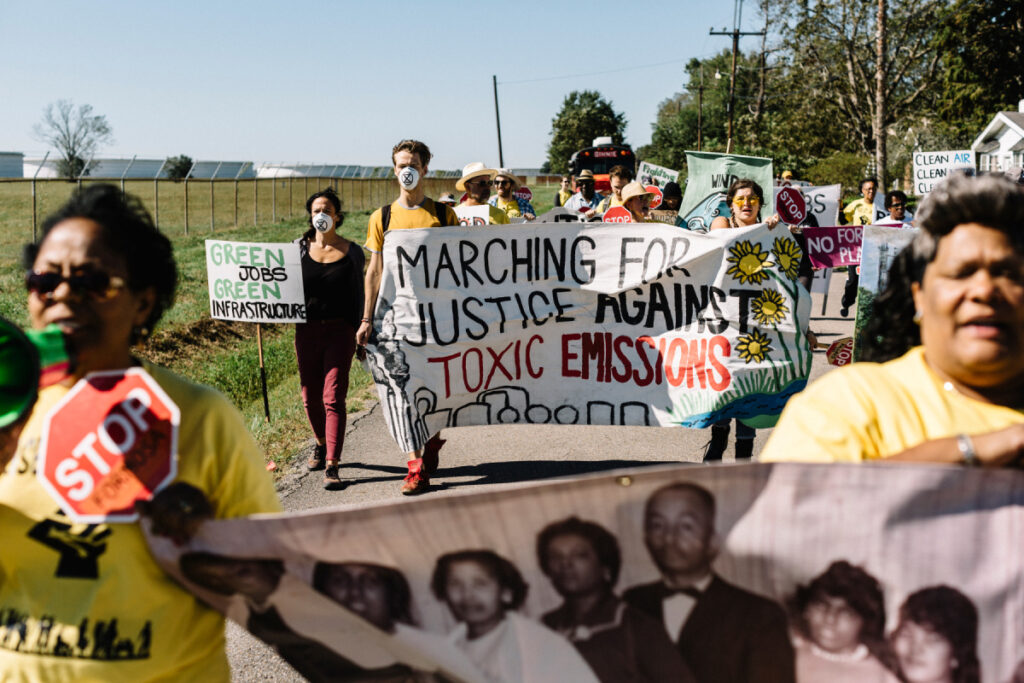The word solidarity is used over and over in the article “Translocal Climate Justice Solidarities” written by Paul Routlegdge, which was published in The Oxford Handbook of Climate Change and Society. As written in the Abstract, “This article argues that a specialized understanding of both particular placed-based struggles as well as how such struggles attempt to forge solidarities beyond the local are crucial in order to construct meaningful translocal alliances.” By briefly discussing climate justice concerning climate change and food sovereignty specifically in Bangladesh, the article discusses the manner in which a potential solidarity can be formed at the translocal level. While other keywords mentioned are translocal alliances, food sovereignty, climate justice agenda, translocal climate justice solidarities stand out the most to me. While I could not agree more with Routlege that solidarities and alliances are formed from shared experiences I think it is interesting race, racism or segregation is not mentioned once in the article.
The style of Routledge article is quite clear. He uses specific occurrences happening at global and local levels to back his argument that translocal solidarities are effective in organizing against climate change. People are more engaged and proactive when they have a shared sense of struggle or injustice. Routledge does discuss the spatiality of struggle, covering broad categories yet still not mentioning race. “The distribution of vulnerabilities among bodies households, neighborhoods, etc. are unequally experienced by men and women rich and poor.” As accurate as this statement is, how could he not further add between white and black, and people of color?
Interestingly, Routledge notes, “An initial requirement for the construction of such solidarities has been the construction of ‘convergence spaces’…” His two examples are interesting as they do not discuss racial issues: the ‘global south’ and Bangladesh. While Bangladesh is a poor country, vulnerable to climate injustice, it is a largely ethnically homogeneous society where it would be easier to find solidarity. Conversely, the global south, while affected greatly by capitalism and the front line of climate change spans broader across diverse countries and regions that are greatly affected by racism and segregation. Although the global south pertains to regions outside of North America, this can be seen in the southeast regions of the United States, where locations such as ‘Cancer Alley’ in Louisiana predominantly affect black neighborhoods. Many third world countries considered part of the global south are also structured in this way with poorer and oftentimes black or minority populations lumped into spaces separate from the majority. The shared experiences can be night and day, even if location wise they are close.
While racism and segregation do not have to limit translocal solidarities, as can be seen currently with the Black Lives Matter movement, after the George Floyd murder, it still presents an ongoing struggle and obstacle when discussing the fight against injustice and specifically climate change injustices. This article, while clear and informative would be more persuasive if it had included discussions on racism and segregation as potential obstacles to climate justice solidarities. As George Floyd’s murder was recorded and thus seen by people of all ethnicity and nationalities, climate change injustices can go on, hidden in many spaces due to segregation by way of racial injustice. As the majority of climate injustices affect segregated spaces due to racism, are consequently hidden from view, shared alliances would be hard to form.

#climatejustice #segregation #CancerAlley #translocalalliances


